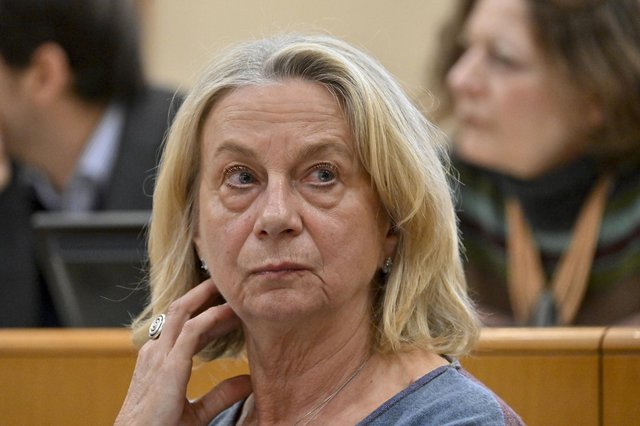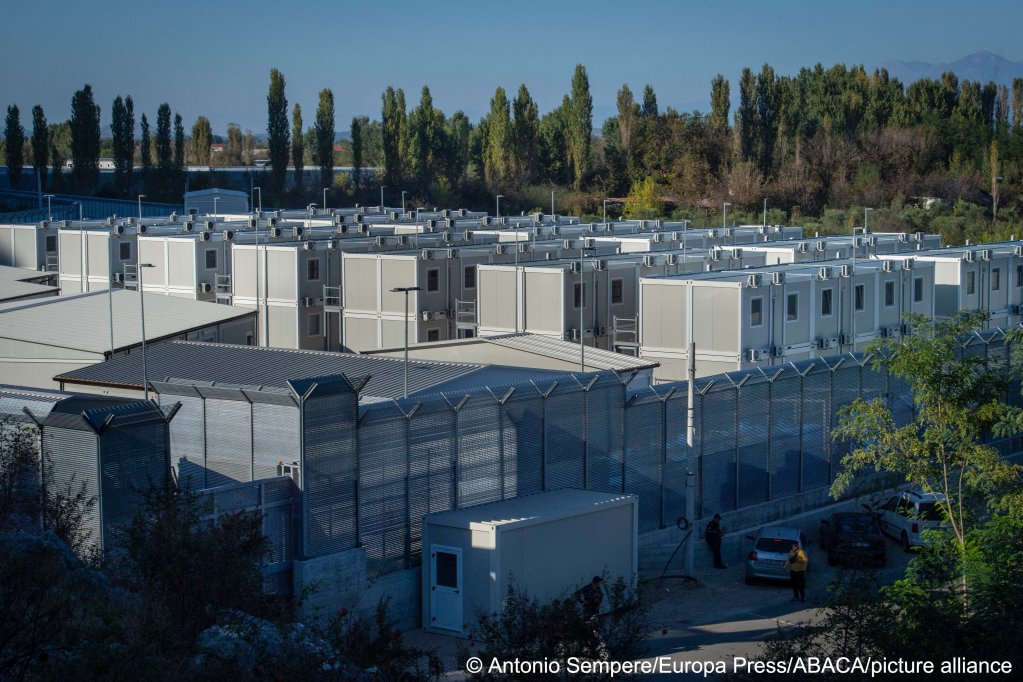Migrants in a Bari reception center staged a three-hour protest over poor living conditions, sparked by the recent death of a fellow migrant who allegedly lacked adequate medical care.
A heated protest was staged by migrants in a reception center in the southern Italian port city of Bari on Monday evening. The protest against the living conditions at the center lasted around three hours and the police had to intervene following unrest, according to Italian media reports.
The protests were triggered by the news of the death of a migrant who had been in hospital since Sunday after a suicide attempt. According to other residents in the center, he had not received adequate care. The protest turned violent when some residents of the center destroyed some of the furnishings.
Numerous police officers intervened and restored order in the center. Some of the migrants were brought to the Italian-run detention center in Albania two weeks ago, but were returned to Italy after the Italian judiciary intervened.
This morning, a delegation of Cara migrants demanding better living conditions at the reception facility was received at the prefecture in Bari.
Local trade unions and human rights associations are following the protests and have highlighted and denounced “mistreatment, inhumane living conditions, living and sleeping crammed in containers.”
Read AlsoItalian government says Italy a 'role model' on migration
Legal setbacks stifling Albania plan
Despite mounting legal challenges and criticism, Italy’s government is pressing ahead with its controversial plans to transfer migrants to Albania. Prime Minister Giorgia Meloni’s administration recently issued a decree designating "safe" countries for repatriation, an attempt to sidestep court rulings requiring that migrants be processed within Italy.
However, on October 18, the Civil Court of Rome rejected the detention of 12 asylum seekers in Albania, and a Bologna Court referred a decree on "safe countries" to the European Court of Justice, sparking tension between Italy's government and judiciary.

Judge Silvia Albano, one of the judges involved, has received death threats, prompting heightened security around her home and workplace. Prime Minister Giorgia Meloni also reported receiving similar threats. Magistrates' associations and criminal lawyers have defended the courts’ decisions, dismissing claims that they constitute a political attack.
The Albanian model, intended to process up to 3,000 migrants monthly, faces backlash from Italian opposition leaders, judicial experts, and EU officials, who argue it undermines asylum rights and may breach international laws. The policy’s estimated 1 billion euro cost over five years has also fueled domestic opposition, with critics calling for parliamentary oversight.
Read AlsoItalian government's Albania plan is mired in legal challenges and criticism
Rising costs and tensions
The government's decision to resume migrant transfers, despite the recent rulings against Albanian detentions, has been heavily criticized by rights groups and the opposition.
Prime Minister Meloni argues the Albanian model aligns with upcoming EU migration rules, despite opposition figures labeling it costly and ineffective.
Euractiv reported that opposition figures, including Nicola Fratoianni of the Greens and Left Alliance, have described the plan as an “expensive propaganda operation”. The projected costs to house 300 Italian officers in Albania -- budgeted at up to 9 million euros annually -- have also drawn scrutiny.

However, the leader of the European People's Party (EPP), Manfred Weber, was more supportive, speaking to the Italian paper La Stampa he stated that "all innovative solutions need time", describing the Albanian model as Europe's attempt to break up irregular migration networks.
Italy's Court of Auditors has started reviewing complaints from the liberal Italia Viva and the left-wing populist Five Star Movement, alleging that the Libra's transport of 16 migrants to Albania amounts to "financial mismanagement". State auditors have launched preliminary assessments, which could lead to further investigations if warranted.
Read AlsoTwo years of anti-immigrant policy in Giorgia Meloni's Italy
